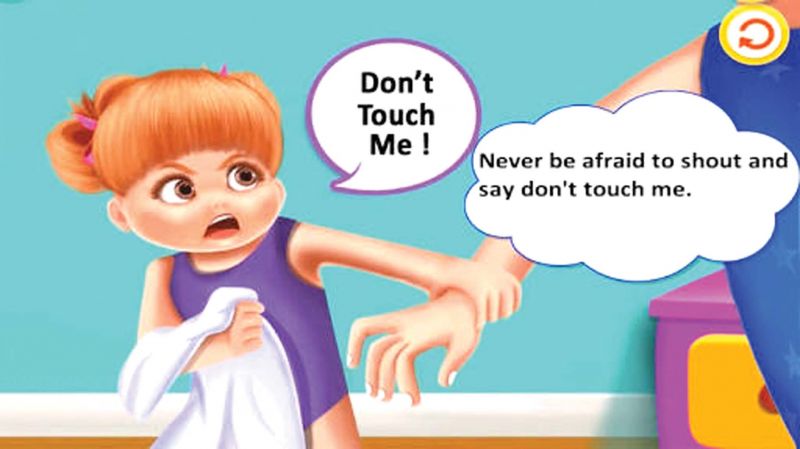Teach them to say ‘NO’
It’s essential to make children capable of protecting themselves and saying a big ‘no’ to intruders.

It’s school reopening time again — a period that causes anxiety for parents and children. While many children resent going back to the disciplined, time-tabled days restricting their freedom, parents are mostly anxious about ensuring the safety of their little ones on school premises or while commuting.
Since children, as individuals, have to move around all the time during their different development stages to learn, play, interact and grow, it is essential to empower them with measures to protect themselves and to instil in them the capability to say ‘No’ to intruders! Nothing matters more than creating a solid bond of trust and warmth between your child and yourself. This will let them know that you are there for them with love and without judgement, in any circumstance.
Setting the boundaries:
There may be no reason to constantly fear for the safety of a child; however, as long as the likelihood of danger remains, educators and parents need to step up the efforts in providing appropriate awareness to children against exploitation and abuse. It is never too early to start teaching basic sex education to young children, say several preschools and experts.
According to psychologists, from as young as four, children want to experiment with, touch and explore their own body parts and the body parts of others. This desire to compare bodies is all quite innocent. Before sending them to a day care centre or leaving them in the care of a babysitter, neighbour or a relative, it is necessary to teach children which body parts are private and should not be touched by others.
Good and bad touch:
An unwanted touch can appear in any form; it need not be limited to sexual abuse. Even something as mild as a hug or caress might be unwanted. It does not matter if the touch seems fine to the parent; what matters is that your child is comfortable with it or not.
For older kids, body safety skills can be taught usually on a more formal basis. For much smaller ones, teaching through books and dolls, as well as during routine care like showering would be more effective. Stories and songs also can help. They learn through demonstrations that a good touch makes them feel happy, such as when a teacher pats them on the back for good behaviour or when a mother hugs with affection whereas a bad touch is when someone touches their private parts. Bad touch is far more insidious than it sounds and can lead to severe physical, emotional and psychological trauma if inflicted on a child.
Parents as best educators:
Parents, who know their children most intimately, are in the best position to teach them the concept of self-preservation. Inculcate in them the right and authority to their own bodies, right from a tender age. Children grow at different speeds, and it’s hard to teach them about the right behaviours before they have at least awareness of body parts.
Respecting privacy:
Teach the kids that their privacy needs are to be respected just like they are expected to respect others’. When the kids go to the toilet or before entering a kid’s room, the parent or teacher could demonstrate the etiquette by knocking on the door to offer help, if needed. The children observe these actions, and the mannerism of respecting one another’s privacy would sink in well into their minds.
Watch out:
Constant vigilance is essential when raising children. The key is to observe carefully and to avoid the situations which might expose the child to danger. Be watchful of any strange behaviour or noticeable signs of distress in children. Always remember that your child depends on you for their safety and happiness.
No, walk away, tell:
Without over-explaining or instilling unnecessary fear in them, we can teach children that they have the full authority to reject any physical advances made towards them. Strengthen the willpower of the children so as to stand up for themselves, set boundaries and make them aware that speaking up against offenders can’t harm them in any manner. They must essentially learn to say ‘no’, walk out, and tell a trusted adult — known as the NOT rules — if they have been touched inappropriately. Ensure they know how to call out for help if they are feeling trapped or in an uncomfortable situation.
(The author is the director of TGL Foundation, editor of Anthropology Today and Senior Director of FWO)

